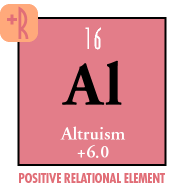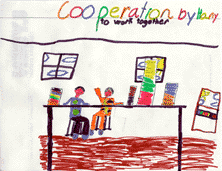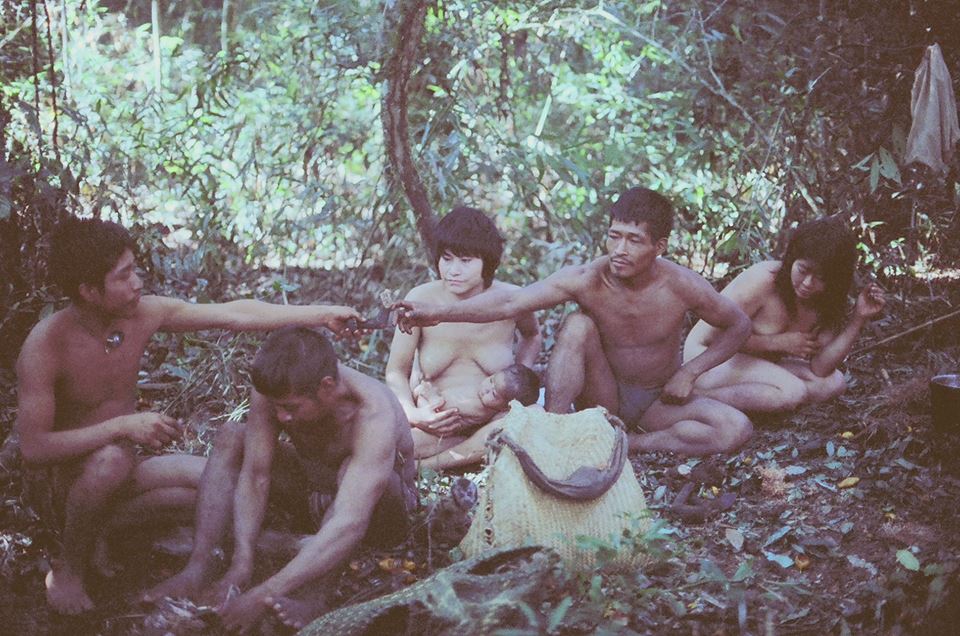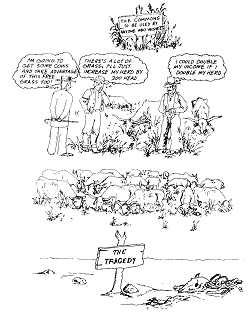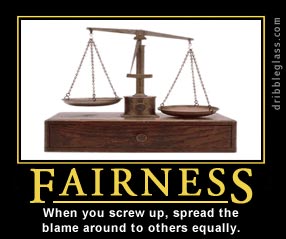Course Description:
|
|
ANTHROPOLOGY 169:The Evolution of CooperationDR. MICHAEL GURVEN
Spring 2018 T R 9:30-10:45Phelps 1444
|
|
Office Hours: T R 10:45-11:45pm or by appointment Office: 2060 HSSB, Tel: 893-2202 (office); e-mail: gurven@anth.ucsb.edu
Required Textbooks:
Coursepak (Available on reserve in Library Reserve room, or can be purchased at Alternative Copy Shop, UCen); additional readings for grad students are available to download on class website
Course Objectives:
This class is designed as an advanced introduction to many exciting aspects of human sociality. Whether we are discussing the evolution of cooperative or "pro-social" behavior among humans, the difficulty in maintaining cooperation in large group projects, how to divide a pie fairly amongst n individuals, whether friends keep score or let bygones be bygones, or how religious system might help foster (or hinder) cooperation in large-scale contexts, evolutionary anthropological approaches (behavioral ecology, evolutionary psychology, gene-culture coevolution) provide us with powerful theoretical and methodological tools to explore ideas about human social behavior throughout history and across the globe: from ancient history, to contemporary African savannahs, Amazonian rain forests, medieval Europe, Los Angeles, a kids’ playground, within the walls of a Wall Street boardroom.
Some questions we will explore include: how common is cooperation in nature? what are the obstacles to building cooperation among individuals/groups/nations/corporations? Is world peace a realistic goal? In what kinds of social environments have our brains evolved? Are our brains wired to encourage cooperation? Why is a sexual division of labor so common ethnographically, and how might this be relevant to divisions of labor among the sexes today (or is it not?) Are divisions of labor evidence of cooperation or perhaps instead, competition? Why do humans live in groups? To what extent do humans conserve their resources or limit their consumption? Why do we care about rank and status so much? How have our emotions, or moral sentiments, shaped and been shaped by our pro-social tendencies? Do we cooperate too much or too little in modern societies? Does religion foster cooperation and if so, how?
This will be a readings-based discussion course emphasizing both classic and new papers from biology, anthropology, economics, and psychology. In this class you will a) become very familiar with evolutionary perspectives on cooperation, b) learn how to read source and secondary academic literature with a critical eye, c) learn to apply what you learn in a creative final project.
Class Requirements:
Students should have at least a basic understanding of evolutionary principles, and should have therefore taken Anth 5, 7, or an equivalent. Students should not be timid, and will be expected to contribute to class discussions. The format of the class will mainly include open discussions about the readings, and brief lectures providing overviews of confusing topics. All students should come prepared to class informed with questions and comments, having carefully read the appropriate articles for that class. Remember this is a readings-based class, so if you don't intend to do the readings, then drop the class now! Involved discussion is a very important component of the class. Thus, attendance is mandatory, and participation is crucial. After this class, students will be fluent with many of the fundamental ideas and empirical evidence bearing on human social behavior. It is also a great primer course for graduate school. (Additional readings are required for graduate students. Undergraduates are free to read these as well, but will not be tested on them).
Summary of how your grade is determined:
20% for midterm
30% for a final project
15% comes from the quality of in-class discussions
35% for reaction summaries.
Midterm (20%): There will be a brief take-home midterm towards the middle of the quarter that will count as 20% of your grade. It will consist of questions that will require you to summarize, distill, compare and contrast positions/views/ideas.
Final project (30%): The project allows you to explore any aspect of human cooperation that may interest you. This may include extensions of topics discussed in class, or you may link the ideas we develop in class to other interests. You must develop a clear question or goal for your project. You are free to use any methodology or medium you wish – e.g. research paper, archival sources, run your own games or experiments, Socratic dialogue, a theatrical performance, paintings, movie, etc. You're only limited by your own imagination and creativity. The accompanying ~10 page paper should be structured into five sections: (1) Introduction, in which you introduce your question of interest, highlight its significance (with reference to relevant literatures), and motivate your hypotheses/predictions; (2) Methods, in which you describe how you investigated your question; (3) Results, in which you describe what you learned or produced; (4) Conclusion, in which you describe the implications of your results and situate them within the broader context of the course; (5) References, in which you list your cited articles. Remember that Wikipedia and non-scholarly websites are not valid bibliographic sources for papers written in this class. Presentations will take place during the alloted final exam time (6/9/2015, 8-11am). The project counts as 30% of your grade. You can work in groups up to 3 people maximum.
Discussion (15%): (Attendence and lateness is also included here totaling 5-10% of your grade). Passive learning is discouraged in this class! For some classes, 2-4 students may be assigned as experts on a particular article. One student will act as advocate, the other as devil’s advocate. This does not mean that only these students discuss the article. They will briefly summarize the main argument of the article (not go through a laundry list of every aspect of the article), then the class should be prepared to attack and defend. All students should write down their own questions they have for each assigned article. This will make class discussion flow more smoothly.
Reaction summaries (35%): 35% of your grade is based on brief reaction papers to the readings. There are 29+ readings. You need to write a "reaction" to a minimum of 14 of the articles throughout the quarter (18 for grad students). A "reaction" should be an intelligent response, evaluation, opinion of the reading for a given class, as well as study questions, and MUST be turned in the day we discuss the readings in class (not after) in order to be counted. It should only be a page or two, and shouldn’t take more than a half hour or hour to write after reading the articles. It should NOT be a summary of the article, a rehash or critique of only the abstract, nor should it be a mini-term paper. Reaction summaries are designed to encourage students to engage in scholarly critiques and explorations of some of the field’s classic and more recent papers.
Class Prerequisites: You should have taken at least ANTH 5, 7 or some other equivalent course in biological anthropology or ecology that explores evolutionary approaches to behavior. We will not spend time justifying why evolutionary theory might be relevant to human affairs.
Be warned: this class emphasizes critical thinking, scientific reasoning and evolutionary logic!
NOTE:
1) In order for a class absence to be excused, notification must be made prior to the missed class, not after. No exceptions.
2) Handing in papers, midterm, projects, or homework assignments late will not be tolerated. There will be a letter grade deduction for each day an assignment is turned in late. No exceptions.
3) Students are responsible for getting any work missed during absences, and updated changes to the schedule, and so claims of "I didn't know" or "You didn't tell me" will not be tolerated.
4) Students should be aware of University policies on plagiarism. Plagiarism in any form can result in temporary expulsion. And remember that Wikipedia and non-scholarly websites are not valid bibliographic sources for papers written in this class.
5) Turn your cellphones off before class. Absolutely no texting, Facebook, or other social media usage allowed in class.
6) The class schedule is flexible and is likely to change. Do not panic. Be aware that the dates given below are only tentative. Readings and homework assignments for the next couple of classes will always be repeated at the beginning of class.
7) If you ever have questions I encourage you to visit me during office hours, or we can set up an appointment. I’m eager to help students in need but you must take the initiative to meet with me. Also, I don’t answer big questions by email, and certainly not last minute questions. Please use office hours for all substantial communication.
Class Schedule:
|
WEEK 1: What is cooperation? Lessons in micro-economics and game theory Readings: 1) Sen (1990) Rational fools: a critique of the behavioral foundations of economic theory. Grads: Axelrod, R., Axelrod, D., Pienta, K. (2006) Evolution of cooperation among tumor cells. PNAS 103:13474-13479. |
|
|
WEEK 2: Animal cooperation, kin selection, tit-for-tat Readings: 1) West et al. (2007) Evolutionary explanations for cooperation. Current Biology 17:R661-R672. Grads: Clutton-Brock and Parker (1995) Punishment in animal societies. Nature 373:209-216. |
|
|
WEEK 3: Cooperative foraging and sharing (and friendship!) Readings: 1) Gurven, M. 2004. To give and to give not: the behavioral ecology of food transfers. Behavioral and Brain Sciences 27: 543-559. Grads: DeScioli, P., Kurzban, R. The alliance hypothesis for human friendship. PLoS One 4(6): e5802. |
|
|
|
WEEK 4-5: Sexual division of labor and human family Readings: 1) Bird, R. (1999) The evolution of the sexual division of labor. Evolutionary Anthropology. Grads: Flinn, M.V. et al. (2011) Evolutionary functions of early social modulation of hypothalamic-pituitary-adrenal axis development of humans. Neuroscience and Biobehavioral Reviews 35: 1611-1629. |
|
|
** Take-home Mid-term exam – Due in 1 week
|
WEEK 5-6: Tragedy of the commons and resource conservation Readings: 1) Hardin (1960) The tragedy of the commons. Science Grads: Rankin, DJ, Bargum, K., Kokko, H. (2007) The tragedy of commons in evolutionary biology. TREE 22:643-651. |
|
|
WEEK 7-8: Fairness, culture, emotions, and social norms Readings: 1) Henrich, J. et al. (2005) 'Economic Man' in cross-cultural perspective: economic experiments in 15 small scale societies. Behavioral and Brain Sciences 28(6):795-855. Grads: Erlich, PR, Levin, SA. (2005) Evolution of social norms. PLoS Biology 3(6):e194. |
|
|
|
|
|
WEEK 8-9: Emotions, morality and religion Readings: 1) Frank, R. (1990) A theory of moral sentiments. Grads: Henrich, J. 2009. The evolution of costly displays, cooperation and religion. EHB 30:244-260. |
|
|
WEEK 10: Catch-up, project presentation Grads: Cesarini, D, Dawes, CT, Fowler, JH, Johannesson, M, Lichtenstein, P. (2008) Heritability of cooperative behavior in the trust game. PNAS 105:3721-3726. Santos, F.C. et al. (2012) The role of diversity in the evolution of cooperation. J. of Theoretical Biology 299: 88-96. |
|
|
Take-home Final project – must be in my hands by 8:00am, JUNE 12, 2018
Note: Class schedule is subject to change. Up-to-date details are given in class.
Course Level:
- Undergraduate
Course Number:
Course Location:
Course Time:
9:30-10:45am


